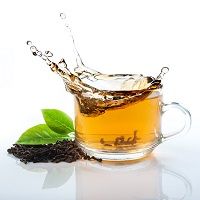Top 10 Most Bizarre Health Stories of 2015
Sometimes health stories can be just downright strange, and even the most experienced physicians may scratch their heads from time to time. Whether it was strange ingredients to treat pain or foods that harmfully impact the body, there have been a fair share of wild occurrences in the past 12 months.

Sometimes health stories can be just downright strange, and even the most experienced physicians may scratch their heads from time to time. Whether it was strange ingredients to treat pain or foods that harmfully impact the body, there have been a fair share of wild occurrences in the past 12 months.
So without further ado, in no particular order, here are the top 10 most bizarre health stories from 2015.
Don’t forget to follow MD Magazine on Facebook, Twitter, LinkedIn, and Instagram to stay up-to-date!

Green tea has been linked to what seems like an endless list of health benefits. From weight loss to protection against cardiovascular disease to even treatment for bladder disease, steeping a cup seems like a proactive thing to do. But one 16-year-old girl’s green tea consumption landed her in the hospital.

What do silicone buttock injections have to do with lung tissue inflammation? You might not believe it if it wasn’t documented.

The Journal of Neurology, Neurosurgery & Psychiatry reports on “a new neurological complication of wearing tight jeans.”

When a 29-year-old man began experiencing chronic pain in his left thumb, the reason why proved to be anything by routine.

Sudoku puzzles — games which are solved by aligning single-digit numbers in a specific way in a grid – are often touted as “brain workouts.” But no one expected the game to cause a major health problem.

This isn’t the “jungle juice” mixture of alcohol that you can find in the basement of a fraternity house on a Friday night. Jungle Juice, otherwise known as “poppers,” is an inhalant that contains isobutyl nitrite which quickly creates feelings of euphoria — and no, it is not legal for sale in the United States. When two married emergency room doctors got their hands on the stuff, things transpired when they used the product in the wrong way.

It may be cool to sip on a Coca-Cola that features your name right on the product, but a report that has been making the rounds details the metabolic roller coaster ride that drinking even a single can unleashes on the body.

Medical marijuana is used to treat the symptoms of conditions such as cancer and multiple sclerosis, but now a different form of the drug has been found to have positive effects on broken bones.

Ibuprofen and acetaminophen are among the well-known ingredients found in pain relievers, but an unusual addition that works just as well as existing medications may be making its way onto store shelves.

Somnambulism, commonly known as sleepwalking, is a disorder that affects 8.4 million adults in the United States (one of which is Friends actress Jennifer Aniston). But as it turns out, these individuals do not feel pain from an injury they acquired during an episode while they are actually sleepwalking.